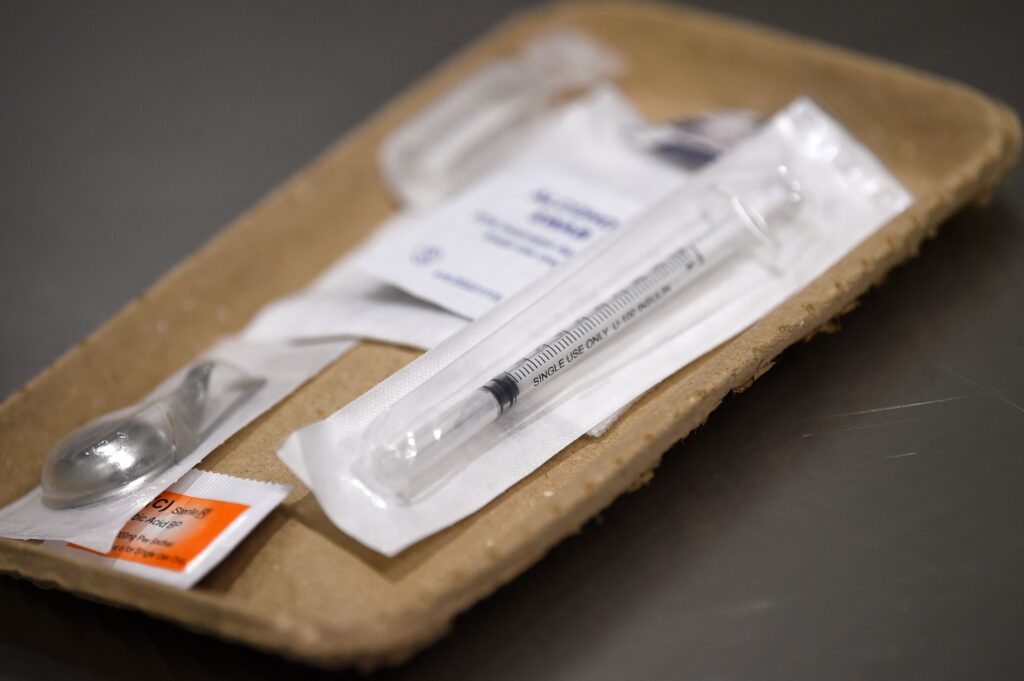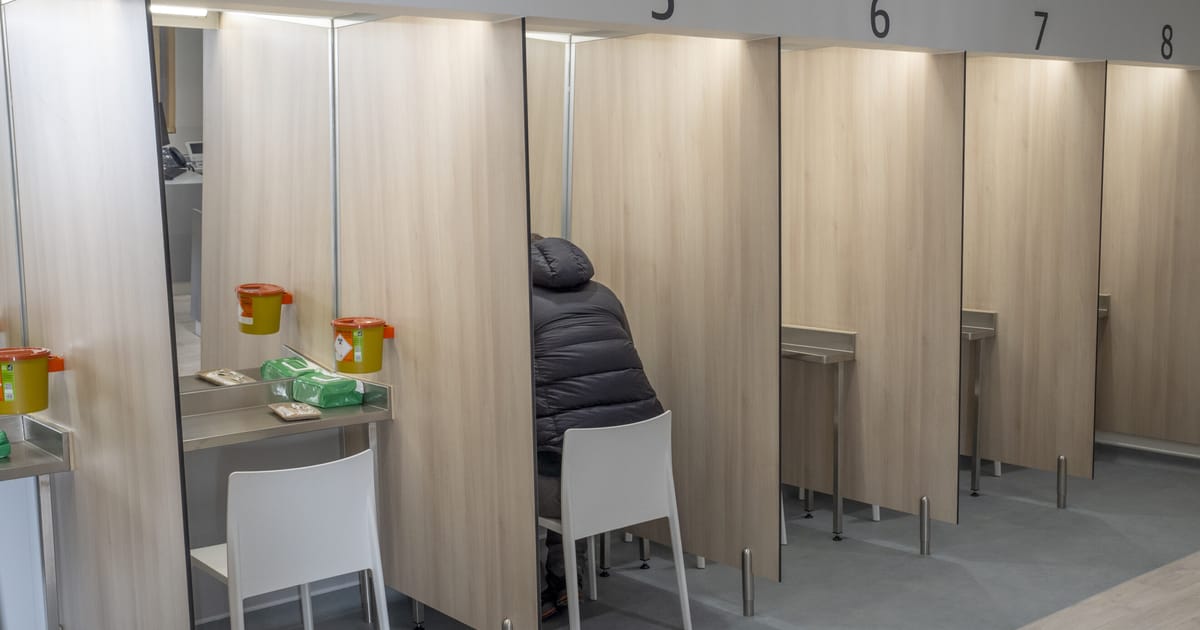After users of the service have consumed drugs, some will recline in a reception-like area under supervision; others will want to chat. Some go out to the small back garden to smoke cigarettes. Their demeanor and activity levels normally depend on what drug they’ve taken, staff say — usually heroin, cocaine or both.
Gary Smith, a social worker at The Thistle, said it was the most rewarding work he’s done as a social worker, adding that the biggest challenge the clinic has faced so far is bad press and misinformation over what happens there.
 Gary Smith, a social worker at The Thistle, said that the biggest challenge the clinic has faced so far is bad press and misinformation over what happens there. | Andy Buchanan/AFP via Getty Images
Gary Smith, a social worker at The Thistle, said that the biggest challenge the clinic has faced so far is bad press and misinformation over what happens there. | Andy Buchanan/AFP via Getty Images
Smith said they’ve faced accusations of putting on taxis to bring drug users to the site or giving them free drugs. “It’s a complete mistruth but we don’t really have a right of reply,” he said.
Scotland has the greatest number of drug-related deaths in Europe, according to the most recent data, although deaths are at record levels across all four U.K. nations. The U.K. as a whole accounts for 40 percent of combined EU-U.K. drug deaths but just 15 percent of the combined population, according to estimates provided by drug reform charity Release, based on data compiled across the EU and U.K. in 2023 and 2024.
In its first seven months, The Thistle had 377 users, 3,554 “injecting episodes” and managed 48 medical emergencies, typically overdoses. A spike in emergencies in March and April revealed the arrival of a deadly batch of synthetic opioids in the local drug supply. In some cases, the plunger on the needle was only halfway down before users collapsed, said Saket Priyadarshi, clinical lead at The Thistle.
“Undoubtedly, if those had happened in a car park or behind a door somewhere, the result almost definitely would have been awful,” Priyadarshi said.

